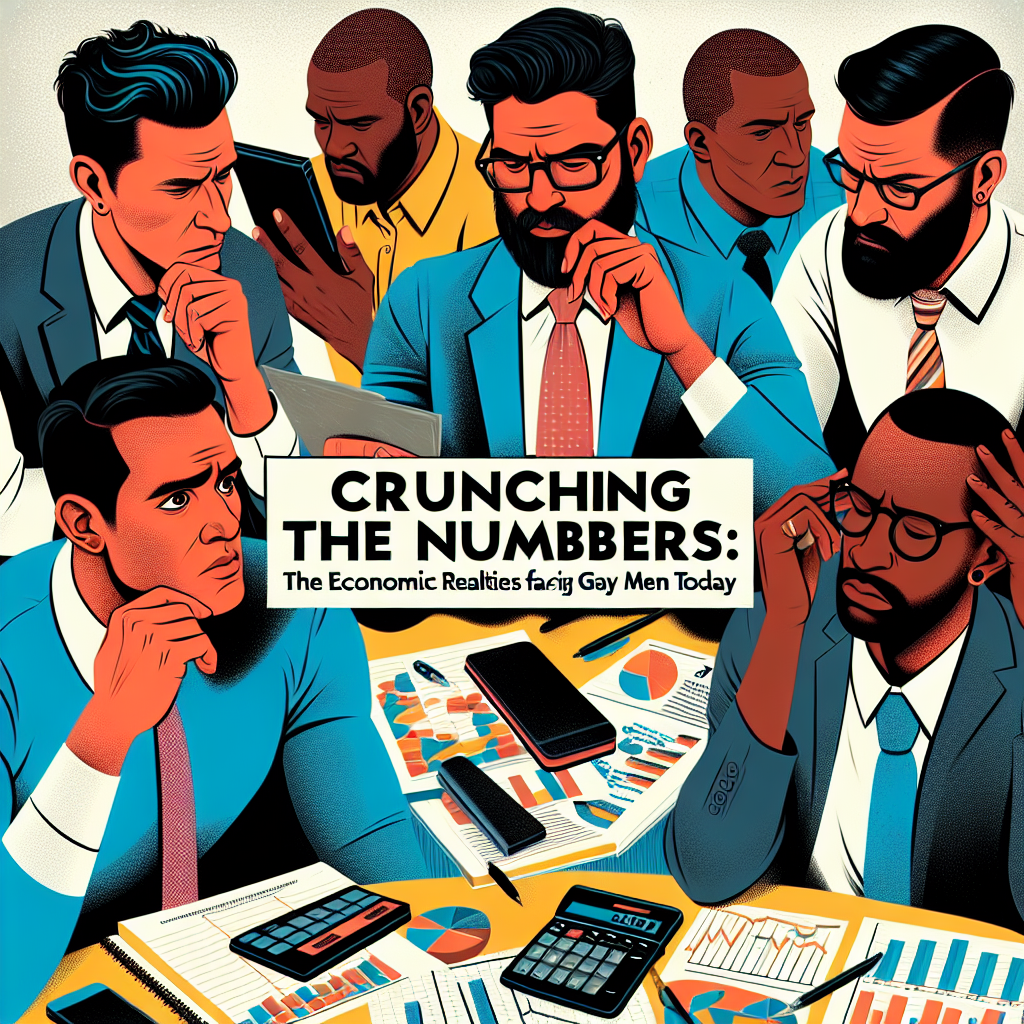As our society continues to evolve and become more inclusive, it is important to acknowledge the economic realities facing different communities, including gay men. While progress has been made in terms of LGBTQ+ rights and acceptance, there are still unique economic challenges that many gay men face in today’s world.
One major economic reality facing gay men is the wage gap. Studies have shown that gay men, on average, earn less than their heterosexual counterparts. This is often attributed to workplace discrimination and the lack of legal protections for LGBTQ+ individuals in many parts of the world. This wage gap can have a significant impact on the financial stability and well-being of gay men and their families.
In addition to the wage gap, gay men may also face higher living costs. Many LGBTQ+ individuals, particularly those who are not able to live openly, may choose to live in urban areas that are more inclusive and accepting. However, these areas often come with a higher cost of living, making it more challenging for gay men to afford housing and other basic necessities.
Furthermore, gay men are also more likely to face financial difficulties due to healthcare costs. LGBTQ+ individuals often experience higher rates of physical and mental health issues, which can result in increased medical expenses. Additionally, many gay men face barriers to accessing healthcare due to discrimination and lack of understanding within the healthcare system.
Another key economic consideration for gay men is retirement planning. In many cases, LGBTQ+ individuals may not have the same family support systems as their heterosexual counterparts, which can have implications for their future financial security. Without children or traditional marriage structures, gay men may need to consider alternative ways to ensure their financial stability in later years.
It is important to also consider the intersectionality of these economic realities for gay men. LGBTQ+ people of color, transgender individuals, and those with disabilities are often at an even greater disadvantage when it comes to economic stability and may face additional challenges related to discrimination and systemic barriers.
So, what can be done to address these economic realities facing gay men? It is crucial for policymakers to implement and enforce anti-discrimination laws that protect the rights of LGBTQ+ individuals in the workplace. Additionally, efforts to increase access to affordable housing and healthcare for all LGBTQ+ individuals are essential. Financial literacy programs tailored to the unique needs of the LGBTQ+ community can also provide crucial support for gay men and others in the community.
At a societal level, it is vital for education and advocacy efforts to continue in order to combat discrimination and promote inclusivity. By fostering a more accepting and supportive environment, we can help create opportunities for gay men and other LGBTQ+ individuals to thrive economically.
Overall, it is clear that there are significant economic realities facing gay men today. By raising awareness and working towards meaningful change, we can help address these challenges and contribute to a more equitable and inclusive society for all.
